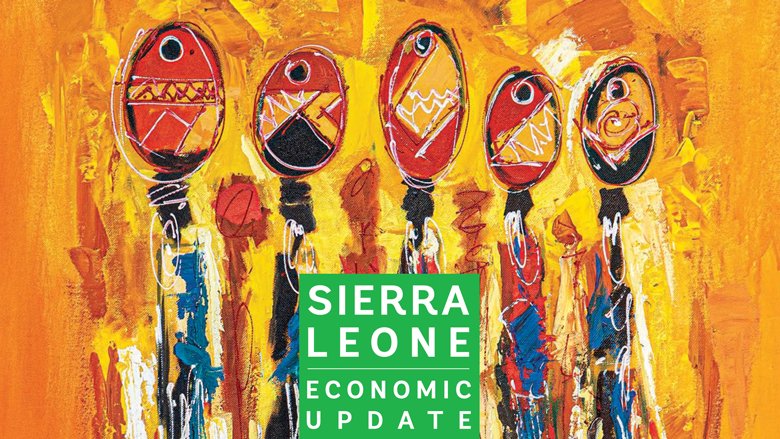FREETOWN, June 21, 2022 – Small and medium enterprises (SMEs) are critical to achieving goals of economic diversification, including expanding of Sierra Leone’s agriculture-based economy into sectors such as tourism and fisheries, according to a new World Bank economic analysis for Sierra Leone.
The 2022 Sierra Leone Economic Update, Leveraging SME Financing and Digitization for Inclusive Growth, notes that government’s reform agenda for the sector should focus on measures to urgently develop adequate financial services that address the specific needs and financing requirements of SMEs to achieve economic growth and improved livelihoods. It further notes the need for critical structural reforms in the financial sector that go beyond the scope of reforms specific to SME and digital finance. The report found that low business skills among entrepreneurs is making it challenging for SMEs to grow into creditworthy or investment-eligible enterprises as providers of both risk capital and bank financing said it remains very difficult to find ‘investible’ companies in the country. This is mainly because entrepreneurs and SMEs in general lack basic business skills to build resilient ventures that can respond to market challenges.
Sierra Leone’s economy grew by 3.1 % in 2021, after shrinking by 2.0 % in 2020. Agriculture contributed over half of total growth followed by services and industry. Manufacturing was the fastest growing sub-sector, expanding by 12.3 % in 2021 after contracting by 6.7 % in the previous year, benefiting from government’s support to SMEs through the MUNAFA Fund and Bank of Sierra Leone’s Le500 billion special credit facility, as well as from increased agribusiness investments. However, public finances have deteriorated since the onset of COVID-19 while inflationary pressures have accelerated since mid-2021, driven first by the post-pandemic rebound in consumption, and subsequently by global supply chain disruptions since the onset of the Ukraine war, and depreciation pressures on the Leone.
While SME finance has been recognized as a priority for the government through demonstrated efforts such as the creation of SMEDA, the SME Policy, and the more recent deployment of the MUNAFA fund, the effectiveness of these efforts has been challenged by the lack of targeting and splintering of efforts. There is need for these interventions to be closely reviewed for effectiveness to ensure that the current loan sizes and cap on on-lending pricing are having the intended reach and market impact on SMEs,” said Kemoh Mansaray, World Bank Senior Country Economist and lead author of the report.
The report indicates that economic growth is projected to reach 4.4 % during 2022-2024 with contributions from investments (especially in mining and agriculture) on the demand side, and from agriculture, tourism, construction, and mining and manufacturing on the supply side. However, the growth outlook faces significant downside risks and uncertainties due to the war in Ukraine, global inflationary pressures, and the continued threat of COVID outbreaks. Headline inflation is expected to remain elevated in 2022 due to ongoing global supply-chain disruptions.
While prudent policy measures are being undertaken to address the needs and financing requirements of SMEs as well as to ensure a sustainable turnaround of the economy, the report also recognizes the major role the government has in developing the sector and country’s overall economy and provides recommendations in several areas. Key reform priorities include:
- Robust performance reviews: ongoing monitoring and evaluation for government MSME programs should ensure public spending is having the intended impact for growth priorities
- National definition of MSMEs: develop a coordinated national approach to expanding access to finance for SMEs, develop and implement a uniform national definition of MSMEs and systematically expand data collection on SMEs and SME finance from government agencies and financial institutions
- Remove structural barriers: existing structural barriers must be addressed for digital financial services to be delivered to entrepreneurs, including to rural farmers and agri-businesses
- COVID crisis support: expanding social safety nets and increasing cash transfers to cover more households and firms affected by higher food and fuel prices
- Prudent fiscal management: this is crucial to strike a balance between the emerging expenditure needs and limited fiscal space
- Monetary policy: maintain balance between lowering inflationary pressure and strengthening the recovery. With inflation driven mainly by supply side shocks, tightening the policy stance too quickly could halt the recovery
In addition to investing in SMEs development, the report identifies the need to prioritize structural reforms for diversifying the economy. The reforms should focus on creating an enabling environment for the private sector to support long-term economic growth, which will in turn support determined domestic revenue mobilization.
